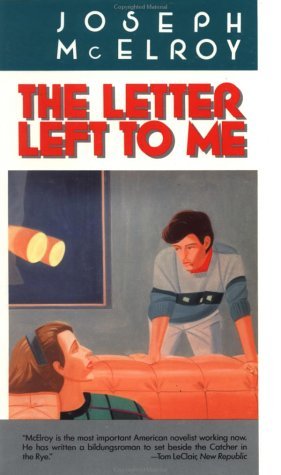What do you think?
Rate this book


152 pages, Paperback
First published August 12, 1988
An actual discussion about what to do with the letter I believe did not happen. It is my fault. Not hearing isn’t so hard; for hearing is built almost of not-hearing. Do I recall not noting what was going on? Hey, wait a minute, that’s my letter.Mere ownership of the letter itself is not McElroy’s aim, though the ethical analysis of such is an excellent primer for the further investigations aimed at. The letter is a physical representation of the message, a message the family believed should be put into the hands and hearts of those around them. This may be for a variety of reasons from general goodwill, to pride in their deceased son and his mental and emotional acuity.
But each of us understands things as we choose to...once a story has been told, it’s anyone’s, it becomes common currency, it gets twisted and distorted, and we all tell our own version.McElroy’s Letter is symbolic of novels themselves; once written the story belongs to all who read them and they are free to interpret them and review them by their own subjective approaches. Who owns words, who owns meaning? Which isn’t a negative, and explores the elasticity of language and meaning and the joys of literature where we can find our own meaning in endless ways³.
Esther uses “family” to mean foibles, the endearingly reliable kind. My Uncle, he said “family” to mean what his mother wanted...I am not using this word “family” myself much. I sounded the word in my mind. As if to an audience who can be pleased. Or as if something would happen…. “The Family” here means four persons, four members of my fathers “immediate” family…
So he’s demanding a change in my--not even my behavior but my body it comes to me now in college, this night that I came home after midnight, it is Christmas vacation, there is no answer, Christmas Vacation hollos through my unwary head, it has at this moment all gone wrong, every bit of it, every hope of it, this night kissing not the girl I loved but a girl I hardly knew--until I stopped wondering when her mother would come home, the girl’s hand on me, my face, my collarbone--and then talking about it, she and I, about kissing, about a double-fluted curve she almost like a sister makes her tongue do again now to show me what I have just been feeling as the clock passed midnight and twelve-fifteen, knowing that luckily tonight I’m a two-minute run from home, and kissing until one a.m., wanting to hold one of her stocking feet when she drew it up and her knee lifted her skirt, but all erased by my father’s anger at the door, intimacy exploded inside out.